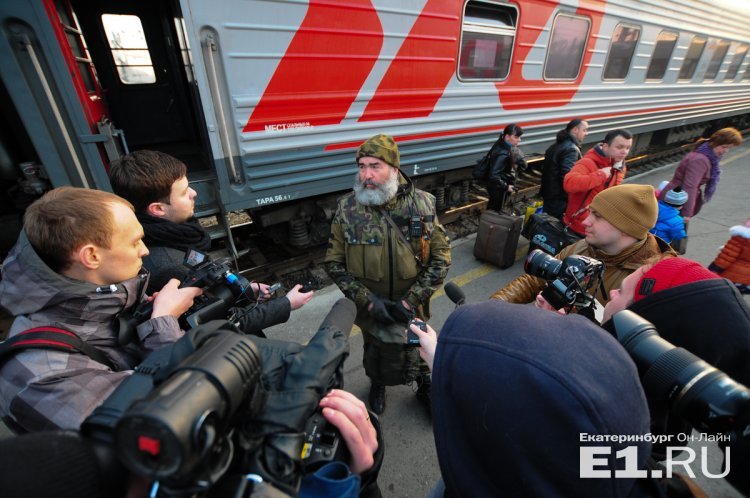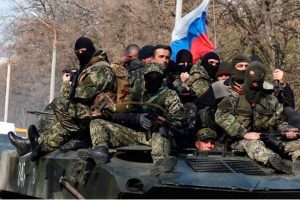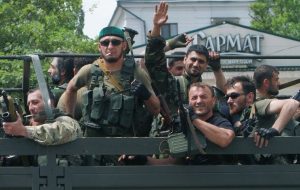Many commentators have speculated that Moscow faces a potentially serious problem when those who have gone to fight in Ukraine return to Russia with their anger and their military skills, the Kremlin may face a more immediate danger: those returning are undercutting Russian propaganda about what is happening in Ukraine.
Today, Yekaterinburg’s independent online news agency reported that "about 180" fighters from the Urals returned from Ukraine today and are telling their families, friends and the media that “local people [in Ukraine] called us occupiers,” an epithet that calls into question Moscow’s messages.
The returnees were led by Vladimir Yefimov, the spetsnaz veteran who recruited them to go to Ukraine in the first place. When they left for Ukraine in March, they formed “the largest official local group of volunteers since the declaration of the armistice. Only half returned today; the rest continue to fight in the troops of the "Donetsk Peoples Republic."
“We manned checkpoints and went on patrol,” Yefimov said. “There were no serious battles,” only occasional shooting and provocations. But the weather in the Donbas was terrible and everyone suffered with the flu, heart problems and lung infections.
He added that he and his men “had become disappointed in the Donetsk Peoples Republic to which they had gone initially because of its ‘duplicitous leadership’ and the attitudes of the local population.”
“According to Kyiv law, we are terrorists. According to a Madrid court, we are also terrorists. According to the law of the Luhansk Republic, persons who are not included on the lists of its armed forces are also members of illegal armed formations. And if one takes money for service there, then we become mercenaries” under Russian law, Yefimov said.
But it was the attitude of the local people in Luhansk, he said, that really repelled him. “They are clearly drawn to Ukraine. They pay taxes to it. And the local population in some places calls us occupiers. We simply lost the desire to work in this republic and transferred to the Donetsk Peoples Republic” where the situation is “much better.”
Yefimov told the Yekaterinburg journalists that he had had to pay for the train tickets of his men back home because of a quarrel he had with his original sponsor: That individual objected to the fact that he had disclosed his name during a media interview despite the fact that he wanted to remain anonymous because he has a business outside of Russia.
Despite all this, Yefimov said, he “plans to prepare a new group of volunteers” and has already found 40 who are ready to go. But his words about how the people of the Donbas really view “Russian volunteers” like himself are likely to have a bigger impact on future events than anything he or they might do in Donetsk.







